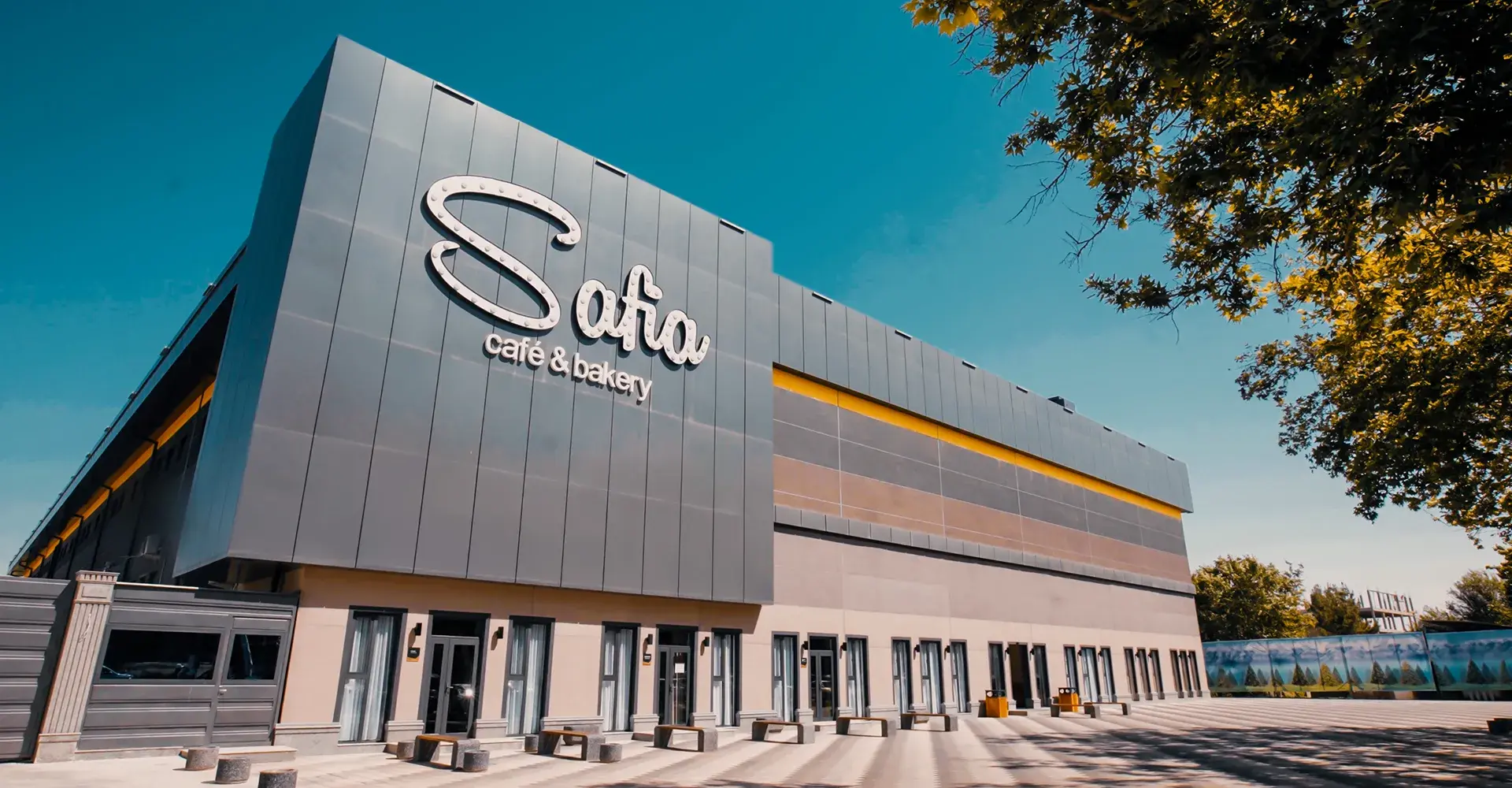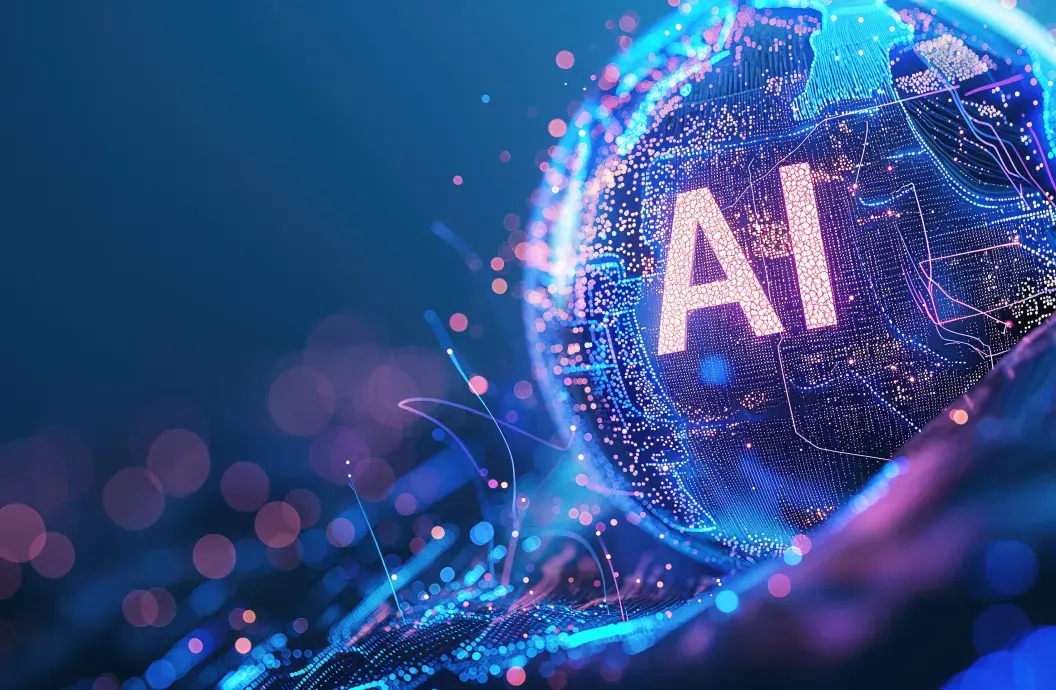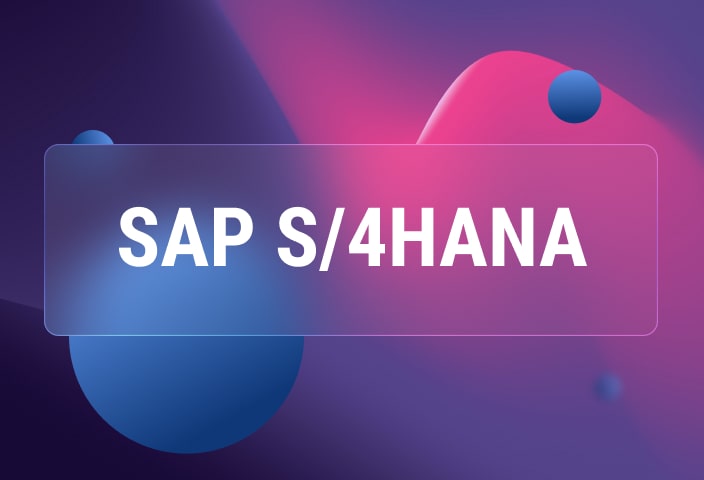Let's look at what trends companies should pay attention to in 2025 to stay ahead of their competitors.
According to the research, the global ERP market has grown by 52% since 2022, and companies are expected to spend $130 billion on ERP software in 2027. This rapid growth is driven by constantly evolving technologies, shifting business priorities, and regulatory demands.

As organizations face increasing complexity, from global supply chain disruptions to sustainability reporting requirements, ERP platforms are transforming into intelligent ecosystems that integrate AI-driven insights, real-time data from IoT sensors, and predictive analytics to support smarter, faster decision-making.
Along with this, ERP trends also change. To stay competitive in 2025–2030, companies must not only track technology-driven ERP trends but also choose the right implementation strategies, ensure seamless integration with emerging tools, and build future-ready ERP roadmaps. Let's look at what trends companies should watch in the next five years to stay ahead of their competitors.
Key ERP Trends to Follow in 2025-2030
1. AI leading the way
MarketsandMarkets forecasts that the AI market will hit $2,407.02 billion in 2032. Previously, companies had to purchase add-ons for the basic version of their ERP systems to ensure data transparency and advanced reporting. However, such features are now standard for most technology stacks, mainly due to the rapid development of artificial intelligence (AI) and machine learning (ML) technologies.
The advancement of AI and ML technologies allows businesses today to obtain answers to questions that until recently seemed like science fiction. For example:
- What will my sales be in the next six months?
- Is adverse weather expected, and how will it affect my supply chain?
- How do my sales this quarter compare to the same period last year?
Thanks to AI embedded in modern ERP systems, companies can make data-driven decisions without deep coding knowledge. Here are some examples of how AI in ERP systems helps businesses:
|
Enhanced financial operations |
Optimized inventory management |
Predictive maintenance |
|
AI improves financial analysis and facilitates accurate forecasting and budgeting by detecting trends and anomalies. |
Using predictive analytics, AI helps maintain ideal stock levels, reducing overstock or stockouts. |
By ensuring proactive maintenance in manufacturing, AI allows businesses to minimize downtime and avoid costly disruptions. |
|
Streamlined HR functions |
Improved customer relations |
Demand forecasting |
|
AI analyzes CVs and profiles to select the best candidates. It can also forecast employee turnover and recommend training or career development strategies. |
AI powers chatbots and virtual assistants within ERP systems, modernizing customer inquiry and order processing. |
AI bridges ERP and CRM systems. This can guide businesses in planning targeted marketing campaigns and improving customer engagement. |
2. Movement towards hyperautomation
Hyperautomation seeks to automate as many business processes as possible using a powerful combo of AI, ML, RPA, and intelligent automation tools. The global hyperautomation market is projected to grow from $15.6 billion in 2025 to nearly $38.4 billion by 2030, reflecting a robust CAGR of 19.7%, according to Mordor Intelligence.
With these tools, businesses automate manual processes and optimize workflows within ERP systems, even those already automated. This approach helps organizations:
- Reduce operational costs
- Eliminate functional gaps
- Improve efficiency
- Maximize ROI from ERP investments
3. Data Fabric: single source of truth and real-time analytics
In 2025–2030, ERP systems will increasingly serve as the data fabric of the enterprise, ensuring a single source of truth across finance, supply chain, HR, and operations. By consolidating disparate data streams into one central hub, ERPs provide accurate, auditable, and real-time information that supports smarter decision-making.
Key benefits of this evolution include:
- Real-time analytics: Employees gain context-rich insights on demand, allowing them to act quickly and confidently.
- Data quality and integrity: Centralized governance reduces errors, eliminates duplicates, and strengthens compliance.
- Anomaly detection: Advanced ERP analytics flag unusual transactions or irregularities, helping teams proactively mitigate risks.
- Predictive decision-making: AI- and ML-driven forecasting within ERP ensures future-oriented strategies based on reliable data.
Rather than functioning as passive record-keeping systems, modern ERPs are becoming intelligent, data-centric platforms that enable real-time monitoring, forecasting, and performance optimization, providing consistency, transparency, and trust across the business.
4. Transition to a two-tier ERP
Placing all company data on a single ERP platform can be challenging when an organization encompasses multiple offices and/or subsidiaries in different cities and countries. This is due to differences in local laws and business requirements. Attempting to ensure compliance with all of them within one universal solution can lead to disaster.
Business outcomes to expect if one platform is forced everywhere:
- Excessive complexity: Bloated process variants, conflicting localizations, and custom code that slows every upgrade and raises defect rates.
- High operational costs: Heavy change requests, perpetual customization, and large central teams to maintain edge-case logic for every country.
- Compliance failures: Inability to keep pace with local tax, e-invoicing, payroll, data-residency, and reporting mandates; increased audit findings and fines.
- Sluggish time-to-market: Global releases gated by the slowest region; long regression cycles due to cross-dependency.
- User resistance and shadow IT: Local teams bypass the ERP with spreadsheets or niche tools when the global template doesn’t fit.
- Data quality erosion: Workarounds create parallel master data and inconsistent transaction logic across regions.
A two-tier ERP strategy addresses these challenges by balancing global and local requirements. This approach involves using two systems simultaneously: one at the corporate level (tier 1) and the other for company divisions (tier 2). Typically, the second tier is a cloud ERP platform.
When using this approach, companies must ensure that employees can interact with each other and exchange data seamlessly between the two tiers. To achieve this, many cloud technology providers offer ERP systems that work at the local level and can be integrated with corporate ERP platforms when needed.

5. Cloud-first and composable architectures
Modern ERP systems are moving away from rigid, monolithic designs toward cloud-first, modular architectures. Instead of investing in heavy on-premise systems, organizations are increasingly adopting cloud-based ERP platforms that are scalable, flexible, and faster to implement.
With a composable approach, companies can choose and combine ERP modules like building blocks, selecting only the components they need and expanding as requirements evolve. This helps avoid bloated systems and ensures agility in responding to market changes.
Key advantages of cloud-first and composable ERP architectures include:
- Faster implementation and scaling: Cloud delivery models and pre-configured modules shorten deployment timelines and simplify rollouts.
- Lower total cost of ownership (TCO): Companies reduce infrastructure and maintenance costs while paying only for the functionality they use.
- Greater business agility: Modular design allows organizations to quickly add, remove, or update ERP capabilities as strategies shift.
- Future readiness: Cloud-native ERP enables seamless integration with AI, IoT, advanced analytics, and other emerging technologies.
By combining cloud-first strategies with composable ERP design, businesses gain flexibility, resilience, and speed — critical capabilities for thriving in the fast-changing business landscape of 2025–2030.
6. IoT is a necessity
IoT has spread across industries and shows no signs of slowing down. Statistics show that the global IoT market could reach $38.7 billion in 2030.
The Internet of Things enables closer interaction among various devices within the enterprise. For example, companies use IoT sensors to monitor equipment, products, and many other physical assets. IoT helps gather information in areas such as:
- Employee productivity
- System efficiency
- Energy consumption
- Downtime
- Assembly speed
- Delivery time
7. UX-first ERP: mobile-first, NLU, and personalization
ERP vendors are putting user experience at the center of their development strategies, ensuring systems are not only powerful but also intuitive and accessible. Employees expect to work from anywhere, on any device, with interfaces that feel as natural as the apps they use daily.
Key aspects of this UX-first approach include:
- Mobile-first access: Seamless ERP functionality on smartphones and tablets enables employees to approve orders, check inventory, or generate invoices in real time — no matter where they are.
- Natural language interaction: Voice-based controls and natural language understanding (NLU) simplify navigation, allowing users to ask questions and get insights without digging through complex menus.
- Personalized dashboards: Tailored reporting and role-based views ensure that employees see only the most relevant data, improving adoption and reducing training needs.
By prioritizing mobility, ease of use, and personalization, ERP systems are becoming more human-centric, driving higher adoption rates and empowering distributed workforces to stay productive and engaged.
8. Industry-specific ERPs
Only 3% of businesses use standard, out-of-the-box ERP functionality. That statistic underscores a strong trend toward tailor-made or highly customizable industry-specific ERP systems. Vendors are responding: more ERPs are being designed to be configurable and to include pre-built, sector-focused modules that address the unique processes of distinct industries.
These customized ERP solutions meet the requirements of many sectors — manufacturing, healthcare, retail — and more. They embed critical business processes and furnish modules designed for the specific workflows of each industry. Below are several examples of these modules:
Manufacturing
Industry-specific ERPs for manufacturing include modules for production planning and scheduling, shop-floor control, bill of materials (BOM) management, inventory tracking, predictive maintenance, quality control, and manufacturing execution systems (MES). These solutions support key business processes, such as real-time monitoring of machine uptime and downtime, material procurement cycles, work order management, and compliance with product safety standards. By integrating IoT data and predictive analytics, manufacturers can optimize operations, reduce downtime, and improve efficiency.
Healthcare
ERP systems designed for healthcare providers typically include modules for patient record management, clinical billing, electronic medical records (EMR), lab information systems, pharmaceutical supply chain tracking, and regulatory compliance. These solutions streamline critical processes such as patient admission and discharge workflows, claims processing, integration with diagnostic devices, and compliance with privacy regulations like HIPAA. Industry-specific ERPs help healthcare organizations improve patient care, maintain operational efficiency, and meet strict regulatory requirements.
Retail
Retail-focused ERP systems often include modules for point-of-sale (POS) integration, inventory and order management, dynamic pricing, customer relationship management (CRM), omnichannel fulfillment, and returns processing. These ERPs support essential workflows, such as demand forecasting for seasonal peaks, real-time inventory visibility across multiple stores and warehouses, efficient handling of returns and exchanges, and seamless integration of online and offline sales channels. This level of customization allows retailers to enhance customer experiences and improve profitability.
Logistics and transportation
ERP systems for logistics and transportation are built to manage complex operations with modules for fleet management, route optimization, warehouse operations, freight and shipment tracking, asset maintenance, and real-time location visibility. Critical business processes include scheduling deliveries, optimizing transportation routes, minimizing fuel and labor costs, and ensuring regulatory compliance in cross-border shipments. These systems enable companies to achieve greater efficiency and transparency across their logistics networks.
Automotive
ERP solutions for the automotive industry focus on managing complex supply chains, global production networks, and multi-tier vendor ecosystems. Key modules include product lifecycle management (PLM), inventory and warehouse control, procurement management, quality assurance, and demand forecasting. Critical processes cover just-in-time (JIT) manufacturing, real-time tracking of parts and components, collaboration with suppliers, and compliance with automotive industry standards like IATF 16949. With ERP systems integrating IoT sensors, predictive analytics, and advanced manufacturing controls, automotive companies can improve efficiency and accelerate time-to-market.
Oil and gas
ERP systems for oil and gas companies are designed to manage highly asset-intensive operations and complex regulatory environments. Key modules include asset lifecycle management, production planning, exploration and drilling management, supply chain optimization, health, safety, and environment (HSE) compliance, and financial planning. Critical processes involve monitoring production performance, managing field operations, tracking environmental impact, and ensuring strict adherence to global safety standards. Advanced ERPs integrate IoT sensors for pipeline monitoring, predictive analytics for equipment maintenance, and AI for optimizing energy distribution.

9. Cybersecurity and data privacy
Since ERP systems contain critical business data, enhancing measures to protect them from leaks is a top priority for companies and providers. To clarify why, we give only three figures:
|
59% of organizations reported being hit by ransomware in 2024 |
$1.85M Average cost of recovering from a ransomware attack |
43% Of all data breaches involved small and medium businesses |
SAP S/4HANA, a next-generation ERP from SAP, incorporates advanced security protocols and complies with global data privacy regulations to guard against cyber threats. Its security framework includes:
- Role-based access control and identity management
- Encryption of data at rest and in transit
- Audit logging and monitoring
- Integration with SAP Identity Authentication Service (IAS) and SAP Cloud Identity Access Governance (IAG)
- Compliance with ISO 27001, SOC 1/2/3, and GDPR
This ERP helps companies mitigate the following potential risks:
- Data breaches
- Unauthorized access
- Malware and ransomware
- Insider threats
- Integration vulnerabilities
10. Green ERP
Today, sustainable development is becoming a key factor in developing and deploying ERP systems. "Green" ERPs help reduce carbon emissions, control energy usage, and support sustainable business practices.
If your company is increasing corporate responsibility for environmental sustainability, a green ERP system will help you implement the strategy developed in this direction, especially since the green technology market size is growing exponentially. It is predicted to increase from $23.63 billion in 2024 to $29.87 billion in 2025 at a compound annual growth rate (CAGR) of 26.4%.

11. Rapid ERP deployments
ERP implementation timelines are shrinking — and this is set to continue as a defining trend through 2025-2030. Traditional rollouts used to take 12-24 months or more, especially for large enterprises. But with the rise of cloud/SaaS ERP models, many organizations are now getting systems up and running in much shorter timeframes.
Key benefits of this accelerated deployment trend:
- Faster time-to-value: Organizations begin seeing ROI sooner, often within months after go-live, rather than a year or more.
- Lower initial costs: SaaS/cloud models reduce infrastructure setup and maintenance expenses; shorter projects mean less consulting and implementation overhead.
- Improved flexibility: Fast rollouts let companies adapt quickly to growth, regulatory changes, or market shifts, without waiting for a long, monolithic system to complete.
Over the next five years, expect these patterns to strengthen: phased releases, pre-configured industry templates, and automation in configuration.
Let’s Discuss How We Can Help Your Business Lead the Next Wave of ERP Transformation
How Emerging Technologies Are Reshaping ERP
Emerging technologies are fundamentally transforming the ERP landscape, enabling systems to become smarter, more predictive, and deeply integrated with business ecosystems. In 2025–2030, ERP will evolve beyond traditional process automation and become the backbone of real-time, data-driven decision-making.
AI and machine learning
ERP systems powered by AI and ML deliver predictive analytics for forecasting demand, detecting anomalies, and automating decision-making. Self-healing workflows will resolve common process errors automatically, reducing downtime and human intervention.
IoT-driven ERP
IoT sensors integrated with ERP systems enable real-time monitoring of equipment, inventory, and supply chains. Data collected from connected devices flows directly into ERP, powering predictive maintenance, service analytics, and production optimization.
Blockchain for traceability
Blockchain enhances security, transparency, and compliance within ERP systems. It ensures traceability across supply chains, pharmaceuticals, food production, and logistics, making it easier to authenticate products, reduce fraud, and meet regulatory demands.
Digital twins
ERP platforms increasingly support digital twin technology — virtual replicas of physical assets, production lines, or logistics networks. In manufacturing and logistics, digital twins enable real-time simulations, predictive performance monitoring, and cost optimization.
Chatbots and SAP Joule
AI-powered assistants like SAP Joule redefine employee and customer interaction. ERP-integrated chatbots handle tasks such as approving purchase orders, resolving service requests, generating reports, and guiding employees through workflows, significantly improving productivity and user experience.
.webp)
Challenges Businesses Can Face When Implementing ERP
It is clear that implementing an ERP system is a significant step for any business, offering the potential for streamlined processes, improved efficiency, and better decision-making. However, the path to successful implementation is not without its hurdles. Below, we explore the key challenges organizations face when adopting ERP systems (the stats were taken from Forbes):
Delays in implementation
Despite the goal of completing the ERP implementation within a year, only 49% of companies manage to stay on schedule. Timelines often exceed initial plans by up to 30%.
Budget overruns
ERP implementation projects frequently exceed their planned budgets, with 45% of companies facing cost overruns, which adds financial strain to businesses.
High failure rates
Approximately half of ERP implementations fail to achieve their objectives, and for first-time buyers, the failure rate can be even higher, ranging from 55% to 75%.
Employee resistance
Resistance to adopting new ERP software is a significant barrier, with 82% of individual users reluctant to embrace the system. This lack of buy-in can hinder the system's effectiveness.
Low adoption rates
On average, only 26% to 27% of employees actively use the ERP system, which falls far short of the ideal 50% engagement rate. As companies grow, the percentage of users actively engaging with the system often decreases.
Underutilization
The practical use of ERP systems within organizations is often lower than expected, leading to a mismatch between the system's potential and actual value delivered.
ERP Trends by Business Size: SMEs vs. Enterprises
ERP adoption strategies in 2025–2030 differ significantly between small and midsize enterprises and large corporations. While both segments aim to improve efficiency, reduce costs, and gain real-time insights, their priorities, technology choices, and implementation approaches vary.
|
Aspect |
SMEs |
Enterprises |
|
Deployment model |
Prefer cloud-first / SaaS ERP for lower upfront costs, faster implementation, and reduced IT infrastructure. |
Use hybrid ERP architectures, combining on-premise systems for mission-critical operations with cloud ERP for scalability. |
|
Technology priorities |
Focus on affordability, usability, and rapid rollout. Priorities: cloud deployment, mobile access, simple integration with CRM, E-commerce, and finance platforms. |
Prioritize AI, predictive analytics, hyperautomation, IoT integration, and sustainability reporting to manage complex global processes efficiently. |
|
AI and automation |
Limited but growing AI adoption, mainly for chatbots, basic analytics, and customer engagement. |
Heavy investment in AI-driven ERP assistants, predictive analytics, and hyperautomation. |
|
Implementation timeline |
Prefer rapid deployments that take typically 3–9 months, using SaaS ERP templates and pre-configured modules. |
Longer rollouts that usually take 12–24 months due to customization, multi-region integrations, and compliance requirements. |
|
Scalability |
Scale incrementally by adding ERP modules as the business grows. |
Require multi-entity, multi-country scalability with full process standardization across divisions. |
|
Integration needs |
Use plug-and-play integrations with E-commerce, CRM, and accounting systems to minimize customization costs. |
Require deep integration with CRM, PLM, SCM, HR, IoT platforms, AI modules, and analytics engines across complex ecosystems. |
|
Key advantage |
Speed and affordability → quick deployment, low TCO, and ease of use. |
Innovation and control → AI-driven insights, hyperautomation, scalability, and full data governance. |
How to Choose the Right ERP Strategy in 2025–2030
As ERP systems become the digital backbone of modern enterprises, selecting the right strategy for 2025–2030 requires a structured, business-driven approach. The goal is to balance technology, scalability, and business priorities while ensuring seamless integration with emerging innovations like AI, IoT, and predictive analytics.
Key steps to build a future-ready ERP roadmap
Audit your current ERP landscape
Assess the maturity of your existing systems, identify performance gaps, and highlight integration challenges. This creates a solid foundation for informed decision-making.
Define your priorities
Decide whether your focus is on cost optimization, process automation, advanced analytics, scalability, or industry-specific capabilities. Priorities guide both platform selection and implementation approach.
Develop a clear ERP transformation roadmap
Prioritize initiatives such as transitioning to SaaS ERP, adopting new modules, and integrating AI and IoT capabilities.
Select the right platform
Evaluate SaaS, on-premise, and hybrid ERP models based on your organization’s size, compliance requirements, security standards, and global scalability.
Ensure seamless technology integration
Your future ERP must integrate smoothly with AI-driven analytics, IoT-enabled devices, mobile applications, and third-party business systems. Go beyond basic connectivity: prioritize end-to-end interoperability that creates a connected digital ecosystem. This ensures consistent data flow, real-time insights, and the flexibility to adopt emerging technologies without disrupting core operations.
Invest in workforce enablement
Upskill teams to work effectively with modern ERP tools, automation, and advanced analytics.
Choose trusted technology partners
Work with experts who have proven ERP expertise and experience in delivering complex ERP transformations across industries.
Run a Proof of Concept (PoC)
Before a full-scale rollout, validate ERP capabilities, integrations, and performance in a controlled test environment to ensure alignment with business objectives.
ERP migration approaches
Choosing the right ERP migration approach is critical when planning your transformation strategy for 2025–2030. The decision depends on your current IT landscape, business priorities, and how much change your organization is ready to embrace.
Here’s a detailed comparison of the three main approaches:
|
Approach |
Best for |
Key characteristics |
Advantages |
Challenges |
|
Greenfield |
Companies moving from legacy systems or adopting ERP for the first time |
Full reimplementation from scratch, complete process redesign, and adoption of the latest ERP technologies |
Maximum flexibility to rethink processes, opportunity to eliminate technical debt, access to modern cloud-native capabilities |
High implementation costs and longer timelines (12–24 months); significant change management is required |
|
Brownfield |
Organizations satisfied with existing processes but needing modernization |
Upgrade of existing ERP; retaining historical data and key configurations |
Lower costs compared to Greenfield, minimal disruption to ongoing operations, faster time-to-value |
Limited ability to redesign processes; risk of carrying forward legacy inefficiencies |
|
Bluefield |
Enterprises seeking a balanced transformation |
Combines targeted data migration with selective process redesign for faster and more controlled implementation |
Optimal balance between innovation and stability, faster rollouts compared to Greenfield, ability to selectively modernize key areas |
Requires careful planning; integration complexity may arise in hybrid environments |

KPIs and success metrics
Measuring ERP implementation success is essential to understanding whether your investment delivers the expected business value and ROI. By tracking the right performance indicators, companies can identify areas for improvement, ensure high adoption rates, and confirm that the ERP system supports strategic objectives.
Here are the key metrics to monitor:
- Implementation timeline adherence: Staying on schedule is critical to avoiding costly delays and budget overruns. Clear milestones and proactive project management help ensure deadlines are met.
- User adoption and engagement: The success of any ERP system depends on how effectively employees use it. Tracking adoption rates shows whether additional training, process adjustments, or interface improvements are needed.
- Process efficiency gains: Measure improvements in operational performance by monitoring reductions in cycle times, manual work, and process bottlenecks. Efficient workflows lead to faster decision-making and improved productivity.
- Data accuracy and reporting quality: Reliable, real-time data is the foundation of effective ERP usage. High-quality reporting ensures decision-makers can trust the insights generated by the system.
- ROI and cost savings: Assess the financial impact of your ERP implementation by tracking cost reductions, increasing efficiency, and improving profitability. Ideally, businesses should aim to achieve measurable ROI within 12–24 months after deployment.
LeverX’s Expertise in ERP
LeverX is a global IT integrator with over 20 years of experience in the ERP solutions market. Leveraging our accumulated experience, our experts deliver turnkey projects in both the implementation of ready-made ERP systems (cloud and on-premise versions of SAP S/4HANA) and the development of custom ERP solutions.
LeverX specialists can join your project at any stage. For instance, we can start with consulting, analyze your current IT landscape, and develop recommendations for its improvement, considering technological trends and updates.
In addition to ERP systems' implementation and deployment stages, we provide services for supporting and enhancing already deployed solutions. We also have an R&D department with access to the latest technological innovations even before their official release, and we are always happy to share insights with our customers. Our company has significant experience managing multi-entity ERP projects with compliance for country-specific tax, labor, and reporting regulations. With LeverX, organizations gain a partner experienced in navigating cross-border compliance, managing large-scale ERP deployments, and accelerating time-to-value for multinational enterprises.
The Bottom Line
The main distinguishing feature of the ERP market in 2025 is the adaptability and flexibility of systems to new technologies and changing business needs. Based on the trends outlined in this article, we conclude that enterprise resource planning systems will become increasingly intelligent, user-friendly, and secure. This will enable businesses to stay afloat in the digital space.
If you want to learn more about ERP trends and how they can benefit your business, contact our experts to schedule a consultation.
FAQ
The ideal time to migrate to a new ERP system often aligns with key business transformation milestones or strategic shifts. Companies typically consider ERP upgrades when:
- Expanding into new markets or regions, which requires multi-currency, multi-language, and compliance-ready capabilities.
- Restructuring internal processes to improve operational efficiency and eliminate outdated workflows.
- Adapting to evolving compliance regulations such as tax, privacy, and sustainability reporting standards.
- Launching digital transformation initiatives that require integration with AI, IoT, advanced analytics, or cloud platforms.
- Merging with or acquiring other companies, which demands consolidated reporting, unified data models, and standardized processes.
There are several signs that indicate your organization may need to move to a modern ERP system:
- Outdated infrastructure that slows down operations and limits scalability.
- Inconsistent or inaccurate reporting that makes it difficult to get a single source of truth.
- Slow or inefficient processes caused by excessive manual work and disconnected systems.
- Lack of mobile access or remote capabilities, which restricts operational flexibility.
- Poor integration with modern technologies such as analytics platforms, AI assistants, and IoT-enabled devices.
How useful was this article?
Thanks for your feedback!


-min-Jul-12-2022-02-13-36-09-PM.jpg)
